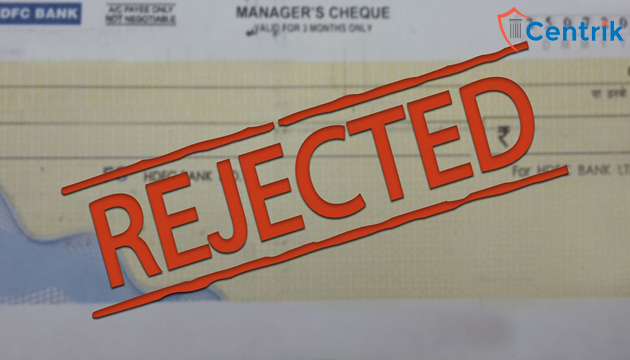
Status as on- 25/10/2021
Introduction
Cheques have always been considered the most suitable and convenient means of payment. Cheques are recognized as a bonafide method of payment in every business and commercial transactions. Similarly, when cheques are accepted in the good faith but get bounced due to several reasons including insufficient funds, the validity of the cheque, overwriting on cheque etc. As cheque bounces have an impact on the business, as well as the cheque will lose its authenticity and trust.
In India section 138 of the Negotiable Instruments Act, 1881 (hereinafter referred to as NI Act) is the primary law in the perspective of cheque bounce matters. Section 138-142 of the Act deals with cheque bounce and specifies the punishment in relation to such and safeguards protection against the same.
An alternative Civil Complaint
With the respect to the complaint under section 138 of the NI Act, the plaintiff can also proceed with the summary suits as per Order 37 of the Code of Civil Procedure, 1908 for recovery of money.
Summary suits are initiated to enforce rights and to recover the money that takes effect faster than ordinary suits as unlike in ordinary suits the courts do not hear the defense.
A summary suit can be instituted in the (competent court as per pecuniary jurisdiction):
- High Courts,
- City Civil Courts,
- Courts of Small Causes, and any other court notified by the High Court.
High Courts can restrict, enlarge, or vary the categories of suits to be brought under this order.
The procedure of Summary Suits-
Order 37, Rule 2 and 3 specify the procedure of summary suits.
- The summary suits initiate with the plaint submitted to the court of proper jurisdiction.
- As summary suits initiate, the summon of the suit is to be served with a copy of plaint as prescribed to the defendant.
- Thereafter, the defendant must enter an appearance within the 10 days of service of summons.
- If the defendant enters an appearance, the plaintiff shall serve on the defendant a summons for judgment.
- Afterwards, the defendant may apply for leave to defend the suit within 10 days of service of such summons.
- If Defendant does not apply for a leave to defend,
- Plaintiff shall be entitled to judgment immediately, or
- the Court may direct the Defendant to give such security as it may deem fit.
Conclusion-
As, section 138 of the NI Act, leads to the emergence of criminal liability against the drawer of the defaulted cheque. Correspondingly, the plaintiff can file a separate complaint and proceed with the summary suits for the recovery of the amount due to him for a speedy recovery.
Disclaimer- The above article is based on the personal interpretation of the related orders and laws. The readers are expected to take expert opinion before relying upon the article. For more information, please contact us at rera@centrik.in




 join For Updates
join For Updates